The
Schreier
Group
Electrochemical Interfaces for Energy Storage and Advanced Chemical Manufacturing
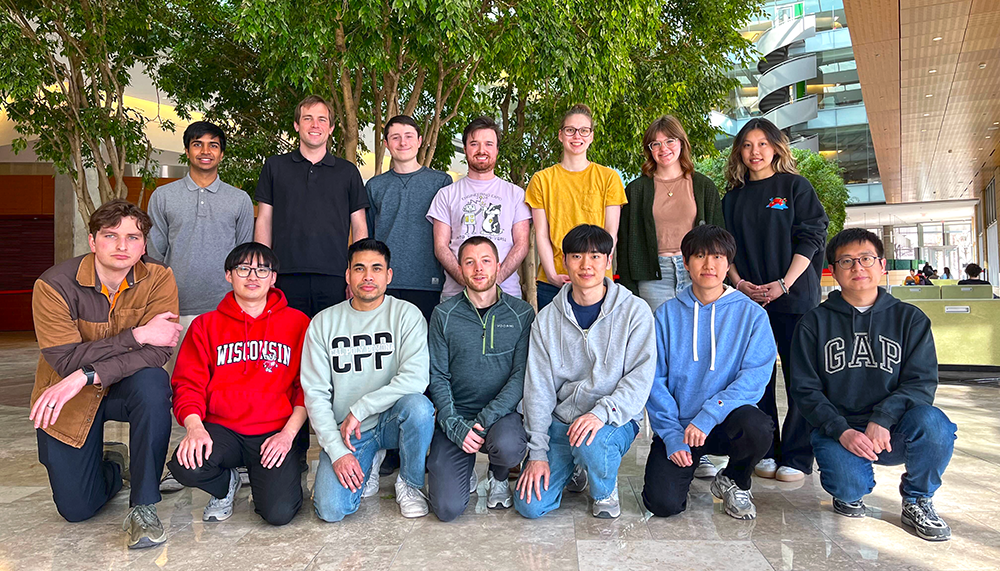
We have a postdoc opening in fundamental electrocatalysis! Send your CV and cover letter to Prof. Schreier
Electrocatalysis allows us to interconvert electrical and chemical energy. But how do these transformations take place? And how can we extend their scope away from the conversion of small inorganic molecules towards other industrially relevant transformations? To answer these questions, our group elucidates the elementary processes that take place at electrochemical interfaces. Specifically, we ask ourselves: How does an electric field drive chemical conversion? At which point in a catalytic cycle is energy transferred? And how?
Since most existing chemical processes rely on hydrocarbons as feedstocks and energy carriers, we employ our understanding of electrochemical interfaces towards developing the science for converting hydrocarbons using electrical energy. In doing so, we open new avenues for the storage of renewable electricity and enable the electrification of the chemical industry.
We keep our sight on the broader move towards sustainable and green chemical reactivity and the increasing importance of electrons as a key energy carrier. As such, we take an inherently interdisciplinary approach to our research problems
News
- 10/16/2025
- New publication by Alex in Nature Communications on analyzing the elementary step rates in propane oxidation over the entire potential range! This can lead to propane fuel cells!
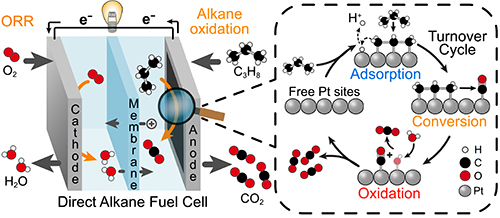
- 10/15/2025
- Congratulations to Lee Fuller for winning an ECS Travel Award and presenting his work at the 2025 Fall ECS Meeting in Chicago!
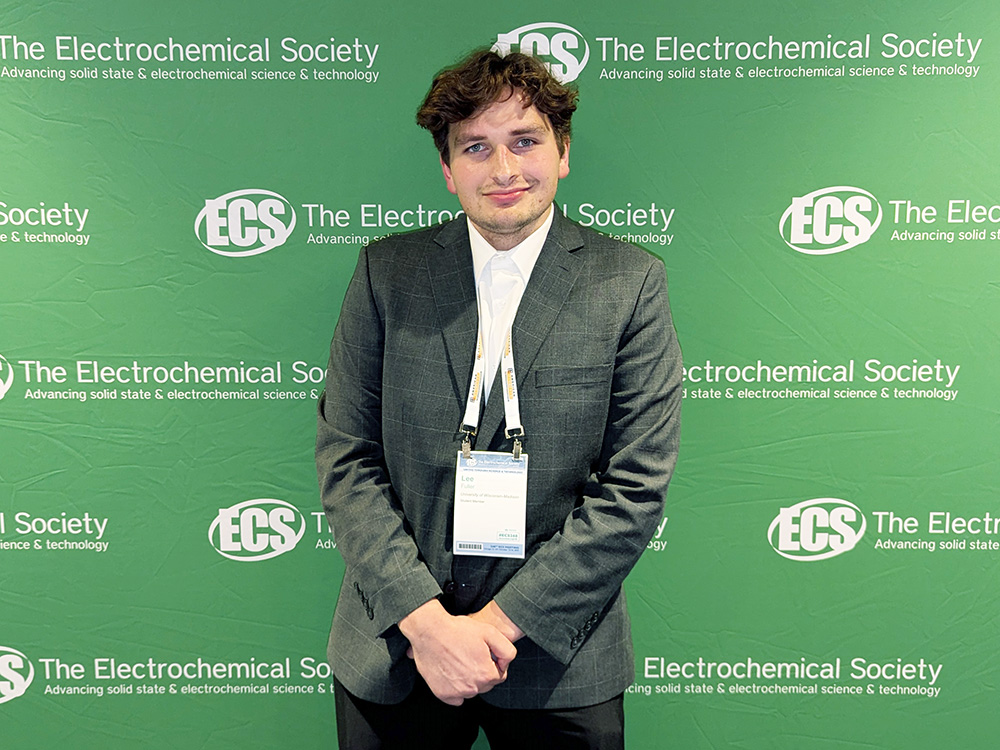
- 09/21/2025
- New publication by Gong and team in JACS on the room-temperature electrochemical dehydrogenation of n-alkanes!
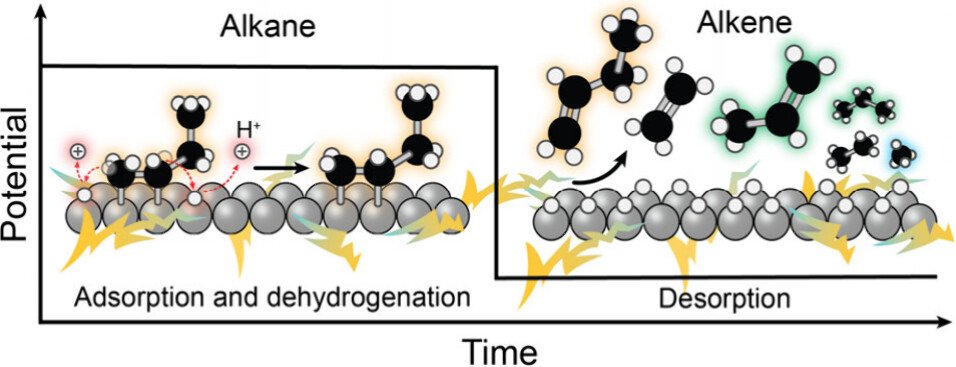
- 09/18/2025
- Have a look at our collaborative work with the Wickens group, just out in Science ! Meg Kelly scaled up the electrochemical thianthrenation reaction! 👏⚡
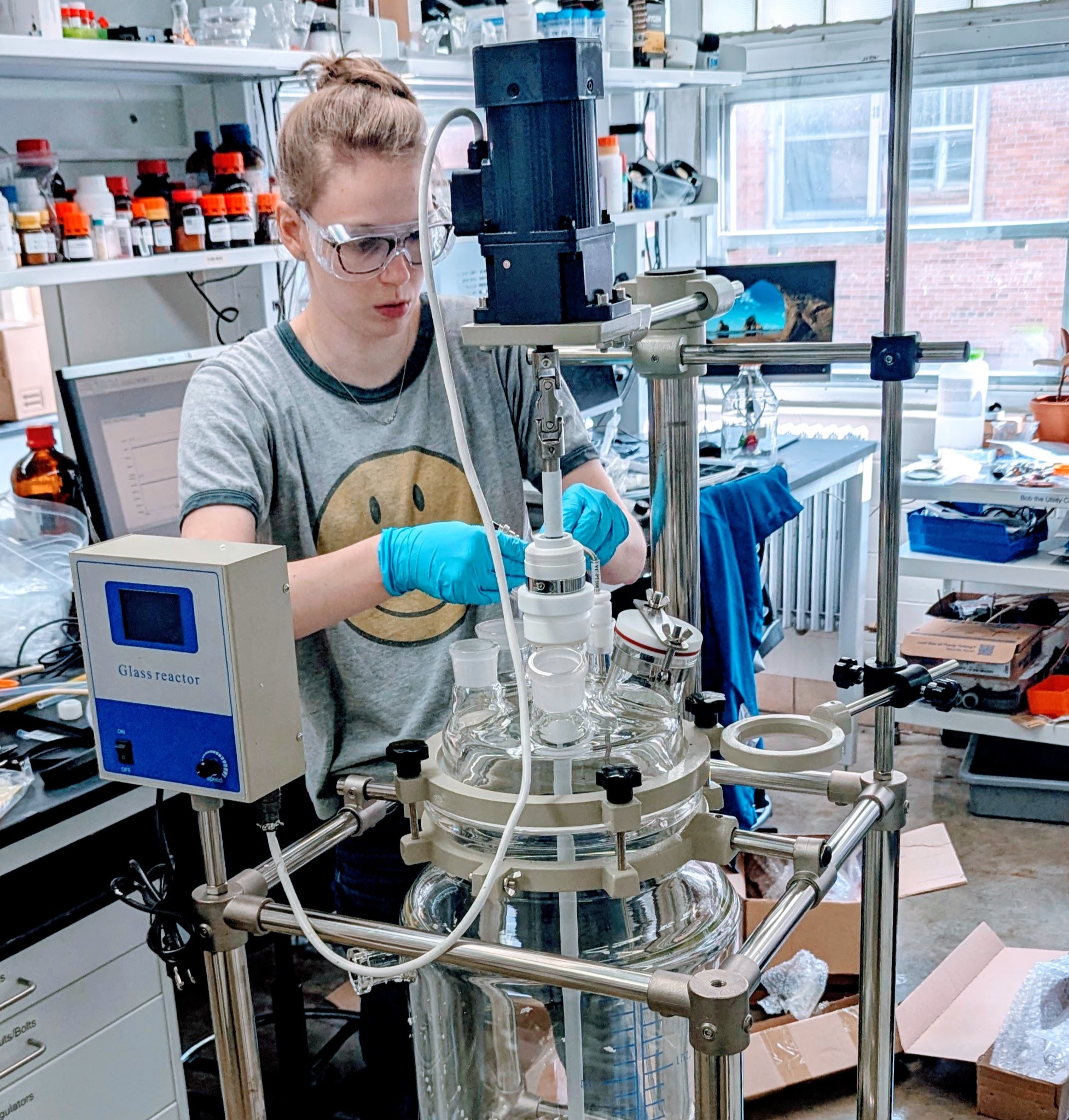
- 03/27/2025
- Seonmyeong, Meg and Macel gave talks on alkane electrochemistry, electrochemical scale-up, and interfacial processes in CO2 reduction at the 2025 ACS Spring Meeting in San Diego.
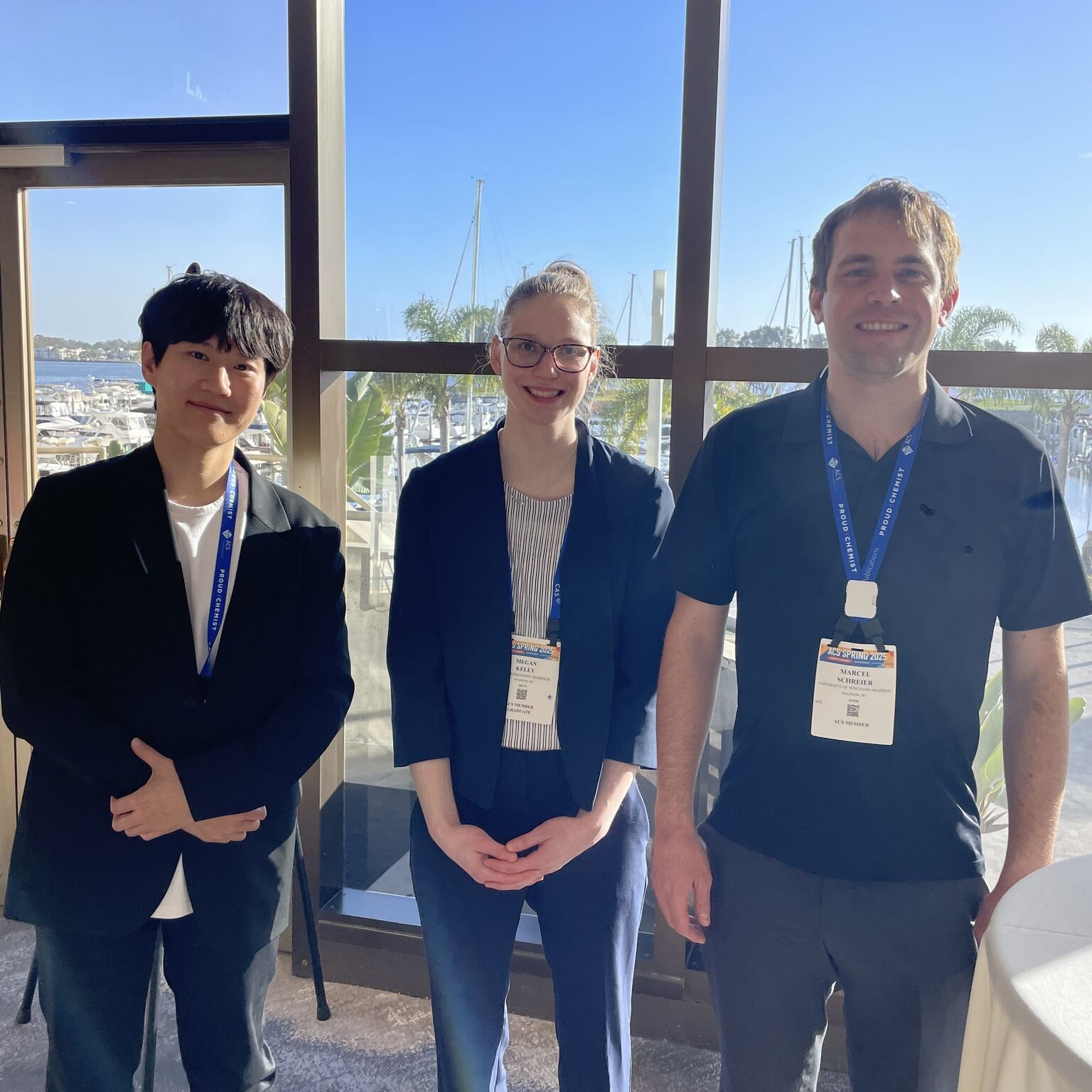
- 03/04/2025
- Marcel gave an invited talk on our work on developing reactors for scaling-up electrochemical organic synthesis reactions at the 2025 Pittcon meeting in Boston.
- 03/03/2025
- Congratulations to Meg for winning a Kokes Award to present her work at the 2025 NAM Meeting in Atlanta! ⚡⚡
- 02/28/2025
- Congratulations to Geunryeol for passing his preliminary examination! 👏⚡
- 02/24/2025
- Congratulations to Seonmyeong and Meg for winning a travel award to present their work at the 2025 ACS Spring Meeting! 🎉
- 02/11/2025
- Congratulations to Zach Oliver for his publication in ACS Central Science!👏 Zach made fascinating discoveries that show that the selectivity of electrochemical synthesis reactions for pharmaceutically relevant compounds can be controlled by modulating the mass transport around the electrode surface!
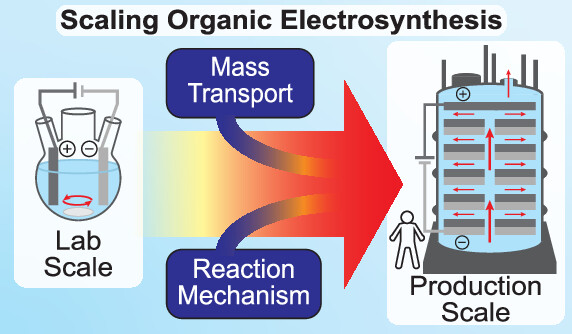
- 12/26/2024
- Have a look at our latest paper in Angewandte Chemie, led by Lee Fuller!👏 We are studying the organization of electrolyte anions at electrochemical interfaces during CO reduction to hydrocarbon fuels and we show that electrolyte anions can suppress the undesired formation of H2.
- 08/29/2024
- Have a look at our latest paper in Nature Catalysis!⚡⚡⚡⚡ We are electrochemically controlling the bifurcation between C-C bond breaking and fragment oxygenation of alkanes on electrocatalyst surfaces! And we selectively desorb products!
- 08/24/2024
- Our postdoc Gong wrote a perspective on leveraging electrochemical double layer structure to rationally control electrolysis in NSR. It's an interesting piece that details how understanding double layer structure allows us to carefully control the outcome of electrochemical reactions!
- 07/08/2024
- Nature Chemistry is highlighting Meg's work on turning the movement of molecules and ions at electrochemical interfaces into sounds!🎶🎹⚡ Read the highlight here!.
- 03/01/2024
- Prof. Schreier recieves the NSF CAREER Award from the National Science Foundation for using time-dependent electrochemical potentials to control the oxidation of hydrocarbons to useful plastic precursors and to extract electricity from them!⚡ Find more details under this link.
- 02/20/2024
- We built a synthesizer that creates music from the oscillation of ions at electrochemical interfaces! Have a look at our paper in ACS Central Science!⚡ and look at the Highlight in C&EN
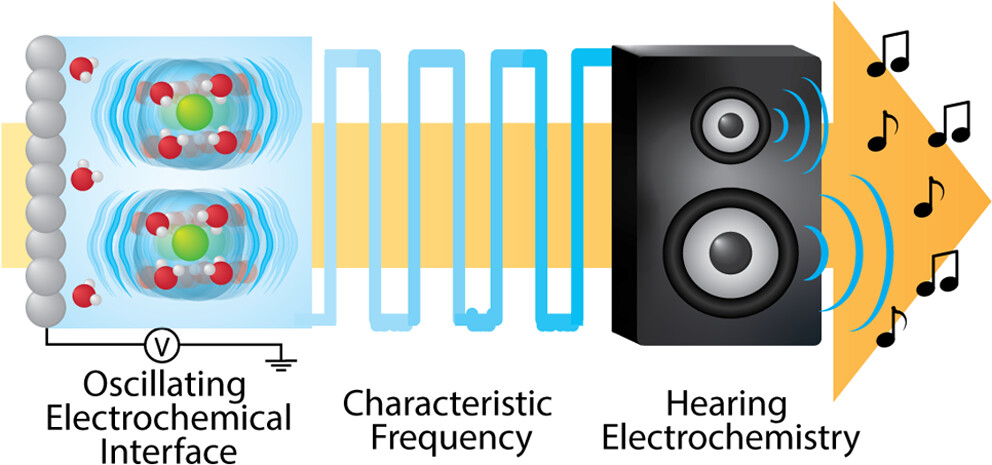
- 02/14/2024
- New perspective in ACS Nano on adsorption in electrocatalysis. Congratulations Christine!⚡
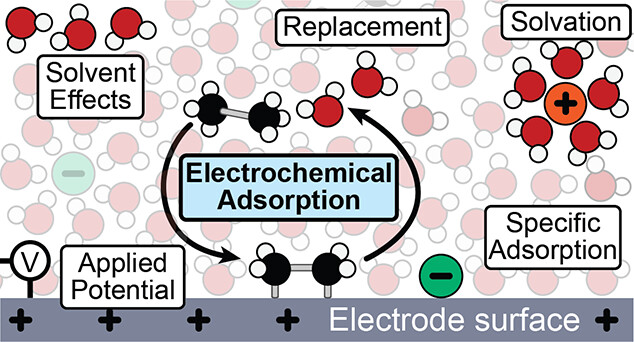
- 01/16/2024
- Congratulations to Meg Kelly for winning the best poster award at the Catalysis Club of Chicago Young Scientist Symposium and to Alex Zielinski for the 4th poster prize!! 🎉⚡
- 12/12/2023
- Welcome to the group Hedam, Geunryeol, and Gyunho!🎉⚡️
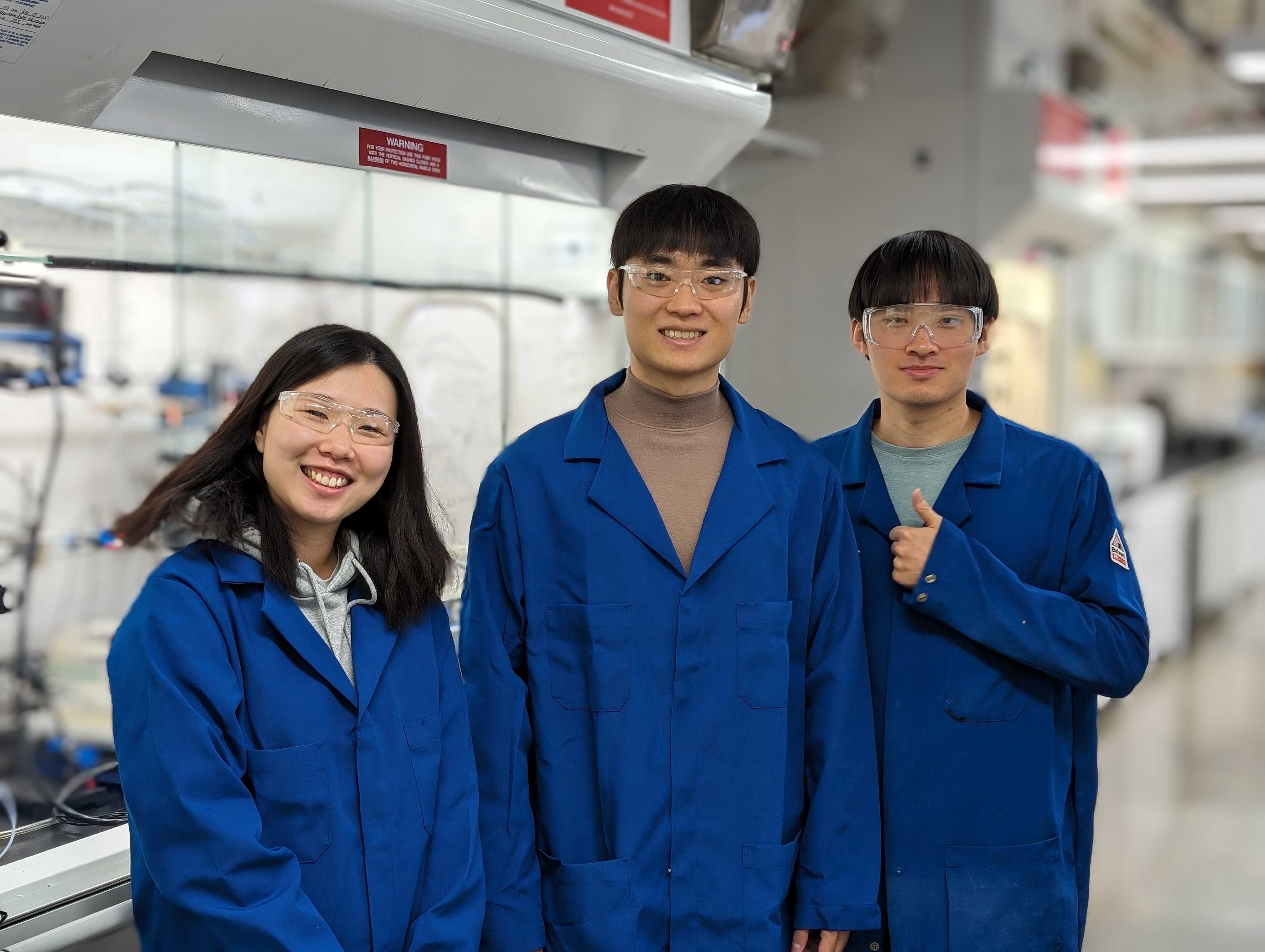
- 11/29/2023
- New publication in JACS on fascinating temperature effects in the electrochemical reduction of CO2 in presence of imidazolium cations.
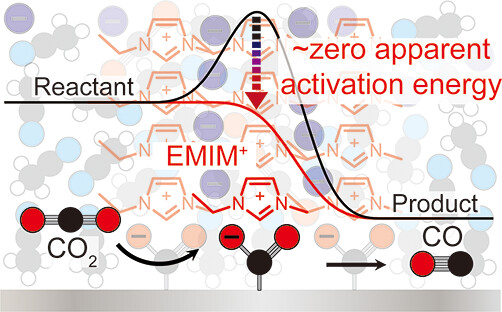
- 10/23/2023
- New publication on determining the chemical identity of methane adsorbed to Pt surfaces.
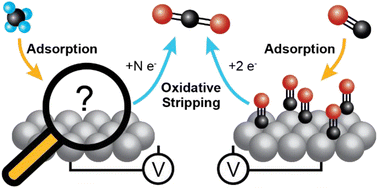
- 08/28/2023
- New perspective article in ACS Energy Letters on the role of microenvironments in electrocatalysis.
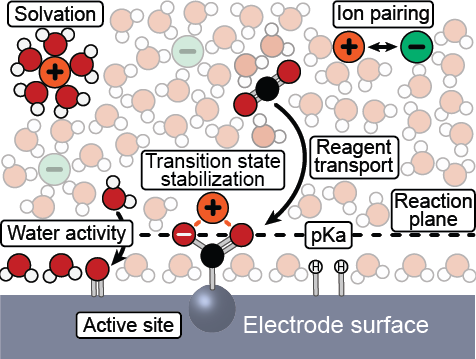
- 06/29/2023
- What a nice JACS cover!
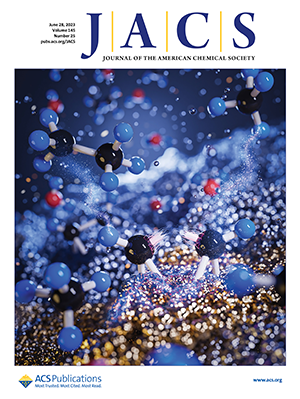
- 06/06/2023
- Have a look at our new paper in JACS! We use real-time changes in electrochemical potentials⚡️ to electrochemically adsorb, break the C-C bond in ethane while it is bound to the electrode surface and desorb methane as a product. Bravo to the group for this fascinating work!👏
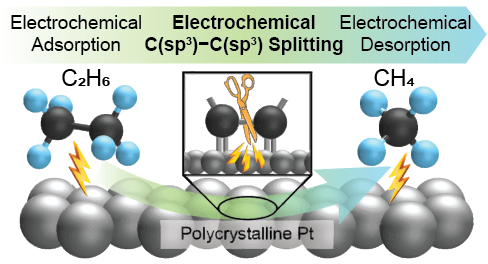
- 05/30/2023
- Three of our undergraduates are moving forward! Rung is going to MIT, Jina is joining the University of Michigan and Charlotte is going to Columbia University! All the best of luck!⚡️
- 03/30/2023
- Congratulations to graduate student Meg Kelly and undergrad Rung Shih for receiving the NSF GRFP award!😀👏🎉 Next gen electrochemists!⚡️
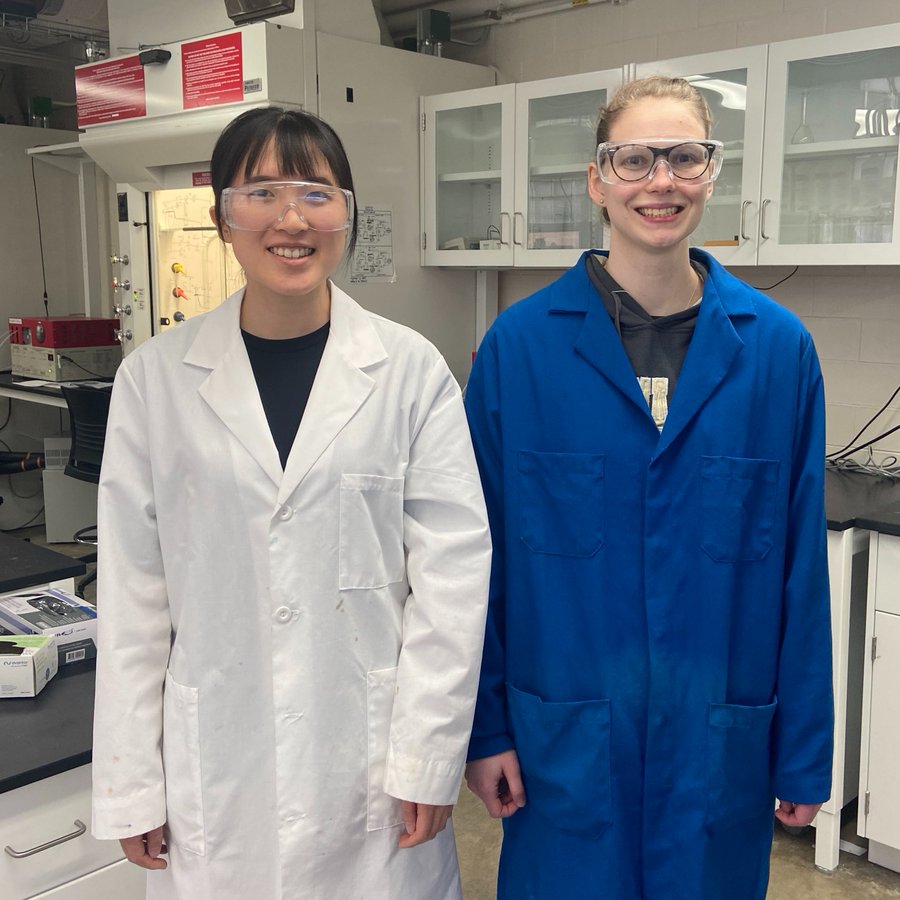
- 12/01/2022
- Congratulations to our former undergraduates for selecting their PhD research groups! Bill Yan joins Suljo Linic (University of Michigan) and Taobo Wang joins Michael Aziz (Harvard University).🎉🎉
